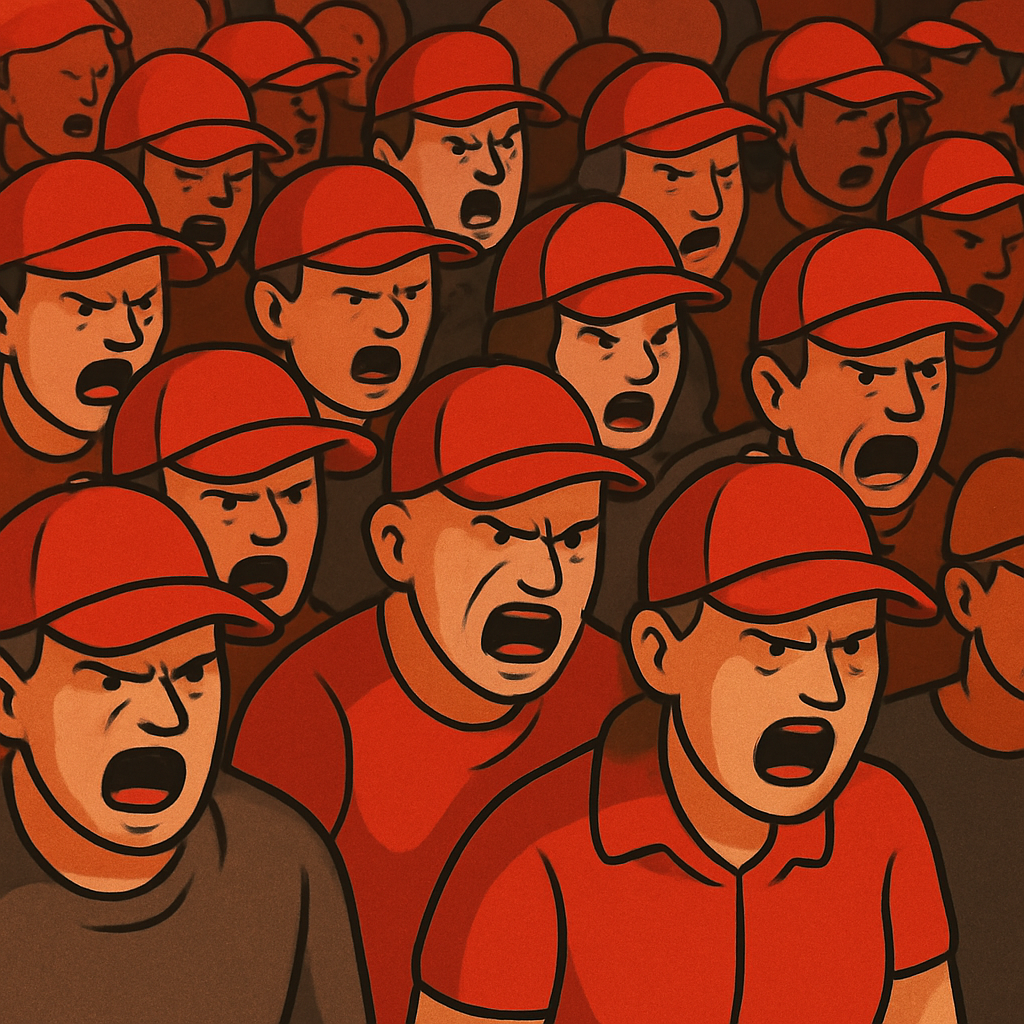
When Politics Becomes Identity: Cult-Like Behaviors in Modern American Movements
Share
In every healthy democracy, political movements rise and fall. Debate, disagreement, and shifting loyalties are all part of the deal. But something strange happens when a movement stops being about policy and starts becoming about a person. When dissent is punished, facts are dismissed, and loyalty is unconditional—you’re no longer in a traditional political space. You’re drifting into cult-like territory.
Sound familiar?
Let’s talk about the warning signs—and why we should all be paying attention.
🔁 1. Unquestioning Loyalty to a Leader
In cult psychology, the leader is everything. They are never wrong. Criticism is betrayal. Disagreement is sin.
We’re seeing this dynamic play out in American politics, where loyalty to a specific person outweighs loyalty to the country, the Constitution, or even truth. No matter what that leader says or does—be it criminal indictments or moral scandals—the devotion doesn't waver.
When allegiance to an individual overrides principle, that’s a red flag.
📵 2. Rejection of Outside Information
Many authoritarian-leaning groups encourage their followers to distrust the media, scientists, experts, and even family members. Why? Because outside information can break the spell.
Today’s political echo chambers are designed for total insulation. Cable news silos, conspiratorial social media circles, and "fake news" accusations create an environment where no opposing viewpoint is valid—just enemies to be destroyed.
It’s not just tribalism. It’s information control.
🧠 3. Groupthink Over Critical Thinking
Cults discourage questions. Movements that rely on groupthink discourage nuance. In some corners of American politics, you're not allowed to say, "I agree with the goal, but not the method." Or "I support this candidate, but they made a mistake." You’re either all in—or you’re labeled a traitor.
But a healthy democracy depends on debate, compromise, and internal criticism. The moment a movement demands total ideological purity, it loses its democratic soul.
🧎 4. Martyrdom and Victimhood Narratives
Many cults frame themselves as under siege. Every challenge becomes proof of persecution. Every consequence is framed as oppression. This allows movements to reinterpret reality in a way that strengthens group identity and shields the leader from accountability.
In political terms, that might look like rewriting history, denying election results, or claiming that legal accountability is a conspiracy.
⚖️ 5. Disregard for the Rule of Law
Movements that flirt with cult dynamics often elevate their leader above legal and moral standards. Rules are for others. Institutions are corrupt. The courts are rigged.
The danger here isn’t just lawlessness—it’s the erosion of shared reality. If truth and justice are seen as weapons of the enemy, democracy loses its foundation.
✋ Final Thoughts: Beware the Idol, Not Just the Idea
It’s not “cult-like” to be passionate about politics. It’s not dangerous to strongly support a candidate or movement. But when that support becomes blind, tribal, and absolute—it stops being politics and starts becoming something else.
As voters, citizens, and human beings, we have a responsibility to stay grounded in reality, truth, and principle. Follow ideas, not idols. Question everything—even the people you agree with.
Because the moment we stop thinking for ourselves… someone else will start thinking for us.
Want more independent political commentary and satire? Subscribe for updates, and check out our latest designs and decals that make resisting tyranny just a little more fun.








